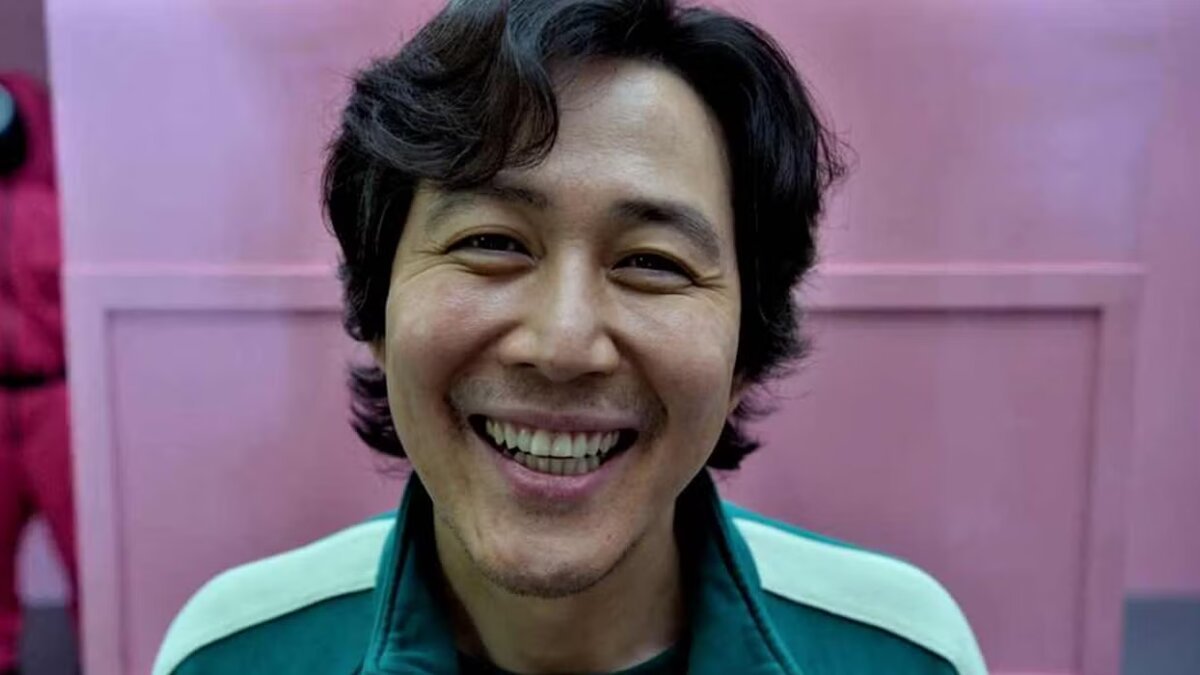When Squid Game premiered, Seong Gi-hun was everyman incarnate—a struggling father, an unlucky gambler, and a man beaten down by life. But his arc wasn’t about winning games. It was about confronting a system that thrived on human despair. Season 1 ended with Gi-hun walking away rich but hollow, haunted by the deaths around him.
In Season 2, we saw his guilt and grief shape his refusal to spend the prize money, leading to a silent war against the game’s creators. And in Season 3, that silent war becomes explosive.
But as the dust settles in the final episode, a pressing question remains: Is Gi-hun still a hero—or has he become something else entirely?
This article dives into the transformation of a reluctant protagonist into a battle-worn revolutionary, and what his choices mean for his legacy in Squid Game’s brutal moral landscape.
Gi-hun’s Heroic Roots: The Survivor We Cheered For
In Season 1, Gi-hun wasn’t extraordinary. He didn’t fight with fists or genius. He survived through empathy, gut instinct, and sheer determination. He gave away food. He grieved. He cried. He chose kindness in a world that demanded cruelty.
His victory felt earned, not because he was the strongest or smartest—but because he stayed human when others broke.
That humanity is what made him a hero in the eyes of fans. But holding onto that humanity through war is a different story.
The Rebellion: Noble Cause or Personal Crusade?
Season 3’s story arc puts Gi-hun in a rare position. He knows the truth. He has the wealth. He’s been inside the system. And he chooses to use it all to take the game down from the inside.
The intention? Noble.
The method? Questionable.
Gi-hun manipulates events. He makes hard decisions. He even sacrifices alliances. The line between hero and tactician blurs. And in some key moments—he crosses it.
Some fans call this growth: a man becoming what’s needed to defeat monsters. Others see it as regression: a man who once grieved death now strategically wields it.
Collateral Damage: What Was the Cost?
Every revolution has collateral damage. In Gi-hun’s case, that includes dozens of new contestants, some of whom die due to his maneuvers or silence. He plays the long game, but in doing so, allows certain events to unfold that cost innocent lives.
The “hero” of Season 1 might have jumped in to stop it. The “strategist” of Season 3 allows it, with eyes on a greater win.
Did Gi-hun trade his soul for strategy? Or did he finally accept the hard truths of war?
This moral ambiguity fractures his legacy. Is he still fighting for the people—or has he become another player in a more sophisticated version of the game?
His Emotional Transformation: Grief, Rage, and Identity
Gi-hun’s emotional arc is arguably the most tragic. Season 3 shows a man unraveling under the weight of trauma and expectation. He no longer recognizes himself. The compassion is still there—but it’s buried beneath a shell hardened by betrayal and loss.
He isn’t fighting just to stop the game anymore. He’s fighting for all the people he couldn’t save. Ali. Sae-byeok. Sang-woo. Their ghosts drive him. And that drive sometimes veers into obsession.
In therapy terms, he’s stuck in survivor’s guilt. In narrative terms, he’s a man whose moral compass points to justice but takes him through hell to get there.
The Ending: Did He Win or Just Survive Again?
By the end of Season 3, Gi-hun’s rebellion achieves partial success. The VIPs are scattered. The infrastructure is cracked. The Front Man is exposed. But the system isn’t fully dead—and Gi-hun knows it.
He walks away not victorious—but exhausted.
The final scene leaves us with a silent question: What did it cost?
His relationship with his daughter is more strained than ever. His name is tainted. He’s a symbol—but no longer a man people truly know.
Is that heroic? Or tragic?
Audience Perspective: The Split Verdict
Online forums and fan communities are sharply divided.
Some say Gi-hun’s evolution mirrors real-world revolutionaries: flawed, desperate, but ultimately necessary. They argue that he never wanted to be a hero—he became one because no one else would.
Others say he lost what made him special. That his refusal to walk away, to heal, to find peace, made him just another cog in the violence machine he wanted to break.
Both views are valid—and both speak to the brilliance of how Squid Game refuses to give us clean answers.
Conclusion
So, is Gi-hun still a hero after Season 3’s ending? The truth is: he’s no longer just a hero. He’s a symbol. A man who represents resistance, pain, justice, and consequence all at once.
He didn’t choose the game. But he chose to fight it.
And in doing so, he became something more—and something less—than the man we met in Season 1.
Whether that makes him a hero or not? That’s a decision you have to make.


